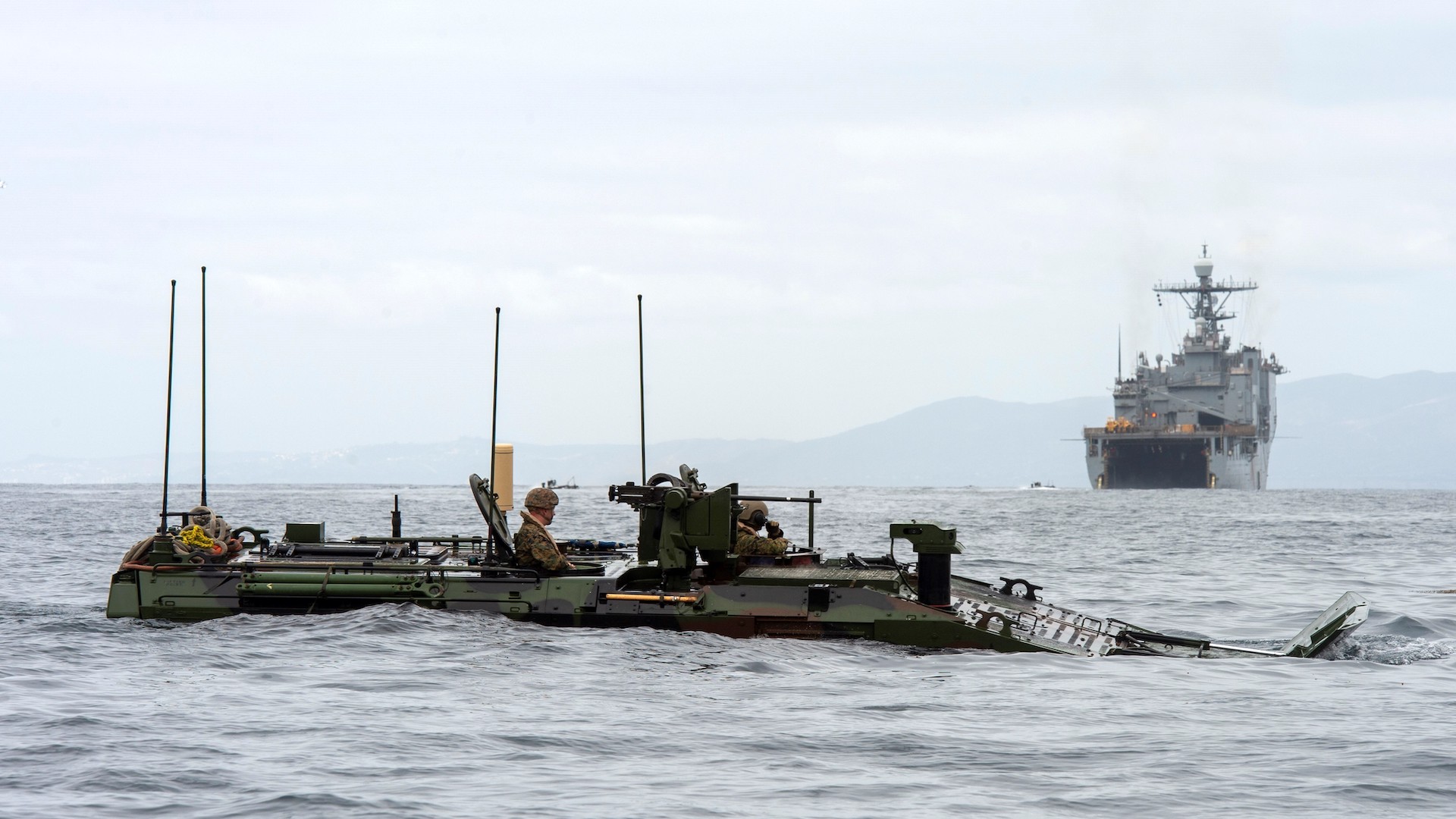

Several dozen Marines were cleared this week to operate the Marine Corps’ Amphibious Combat Vehicles in Camp Pendleton’s surf zone, more than half a year after a series of mishaps in shallow waters.
This week 29 Marines completed a training course to be recertified in using the Amphibious Combat Vehicles (or ACVs). 30 others completed it in June. The course was first established in February, after the Marine Corps set out to improve confidence in operating the ACVs.
The 1st Marine Division has been testing several ACVs at Camp Pendleton in California, which saw three different mishaps in 2022. Last October an ACV rolled over in the surf zone, due to what was deemed a “mechanical malfunction.” That followed an incident in July where one ACV broke down and another flipped in the water.
Subscribe to Task & Purpose Today. Get the latest military news and culture in your inbox daily.
After the October incident, the Marine Corps halted all surf-zone training. Training was allowed to continue on land and at sea, or in a harbor. Limited ACV use was allowed in the surf to collect data for further study. The ACV Transition Training Unit was set up after the investigators recommended increased training on the newer Amphibious Combat Vehicle. The course included test runs with ACV on land and in the water, before eventually operating the vehicles in the Camp Pendleton surf zone.
Approximately 300 ACV operators and maintainers still need to complete the training course, according to the Marine Corps. Marine Corps Times reports that the Corps expects that to be completed by the fall 2024.
The ACV is the Marine Corps’ replacement for the decades-old, Vietnam War-era Amphibious Assault Vehicle (AAV). The newer vehicle uses wheels, unlike the tracked AAV. The Marine Corps phased out the AAV after a 2020 incident where eight Marines and a sailor died as an AAV sank. The AAV was fully pulled from operations at the end of 2021.
A month after the October order to pause surf zone testing, the Marine Corps still showed its dedication to adopting the new ACVs, ordering 30 more for $153 million. The service branch plans to have more than 600 ACVs to replace the AAV fleet. However, there were some doubts even after that. The then-Commandant of the Marine Corps Gen. David Berger outlined a series of technical issues with the ACVs earlier this year.
Marine ACV operators who have not yet completed the course can continue to test the ACVs on land and at sea.
The latest on Task & Purpose
- Marines fire two Parris Island leaders in charge of recruit training
- ‘They were just being good pilots’ — Inside the Osprey crash that killed 5 Marines
- Court martial begins for Marine drill instructor in ‘Crucible’ death of recruit
- Navy cargo ship runs aground in Bahrain
- U.S. Soldier ditched a flight home, ran across DMZ into North Korea, is now detained
